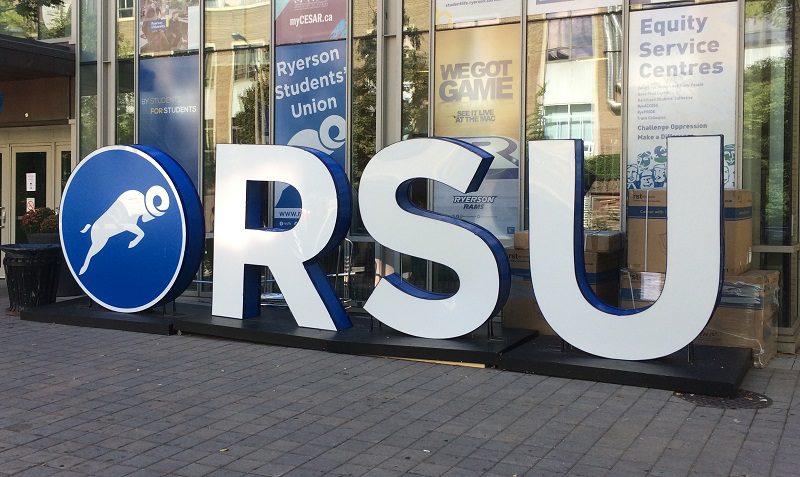Fifteen students will be receiving $2,000 each next year, as part of the Ryerson Students’ Union’s Mental Health and Leadership Award, which provides financial aid for student leaders with mental health issues.
The outpouring of grief after third-year film student Nadia Marzouca’s death in September propelled RSU vice-president equity Rabia Idrees to start the award, after several students approached her for peer counselling.
Rabia, who has served as a committee member for a mental health award established by a Chinese professionals association and conferred by the university. Part of what inspired her was the student essays she read in those submissions.
“This is lot of support in second semester. It can help you with textbooks, rent, and so much more,” Idrees said. “We do have a leadership culture on campus and this is an opportunity to be recognized.”

The RSU is offering $30,000 for 15 students who are mental health leaders (Peter Goffin/Ryersonian Staff)
The award is the first of its kind to be offered by the RSU, and Idrees said she hopes that future RSU executives continue funding it
Recipients will be chosen by a committee consisting so far of Idrees, a RyeACCESS co-ordinator and a RSU bursary committee member. Idrees hopes to also recruit employees at the counselling centre as selection committee members.
The application process was devised by RyeACCESS, RSU board members and the university’s award office. It consists of short answers applicants would write about ways they were leaders. The award’s definition of student leader is loose, defining leadership as “any proactive assistance given to complete a goal or event for the advancement of Ryerson and student life on campus … A student in a leadership capacity is someone involved in a special project, a society, course union, student group, or volunteers within the Ryerson campus and other communities to make a positive difference.”
Post-secondary mental health bursaries and scholarships are rare in Canada, with the few that exist, including the university’s FCCP mental health resilience award, either calling for proof of mental illness or a minimum GPA.
Disability studies instructor and “Mad” activist Danielle Landry calls the award a step in the right direction. Mad is a reclaimed term for a counter-psychiatry movement that centralizes the experiences of those living with mental health issues.
Landry highlighted giving students the option to consent on their identity being published, as well as being able to self-identify, as important parts of the award that made it accessible.
Landry also voiced concerns for how admissions would be evaluated, and if only students who did work around mental health stigma would be rewarded.
“There are a million stigma-busting campaigns,” Landry said. “Mad students to me are leaders in so many different ways, they’re fighting racism on campus, they’re fighting for systemic change … It is ongoing and it’s often unacknowledged work and that is where we’re going to see real change.”
Applications will be accepted until Jan. 10.

